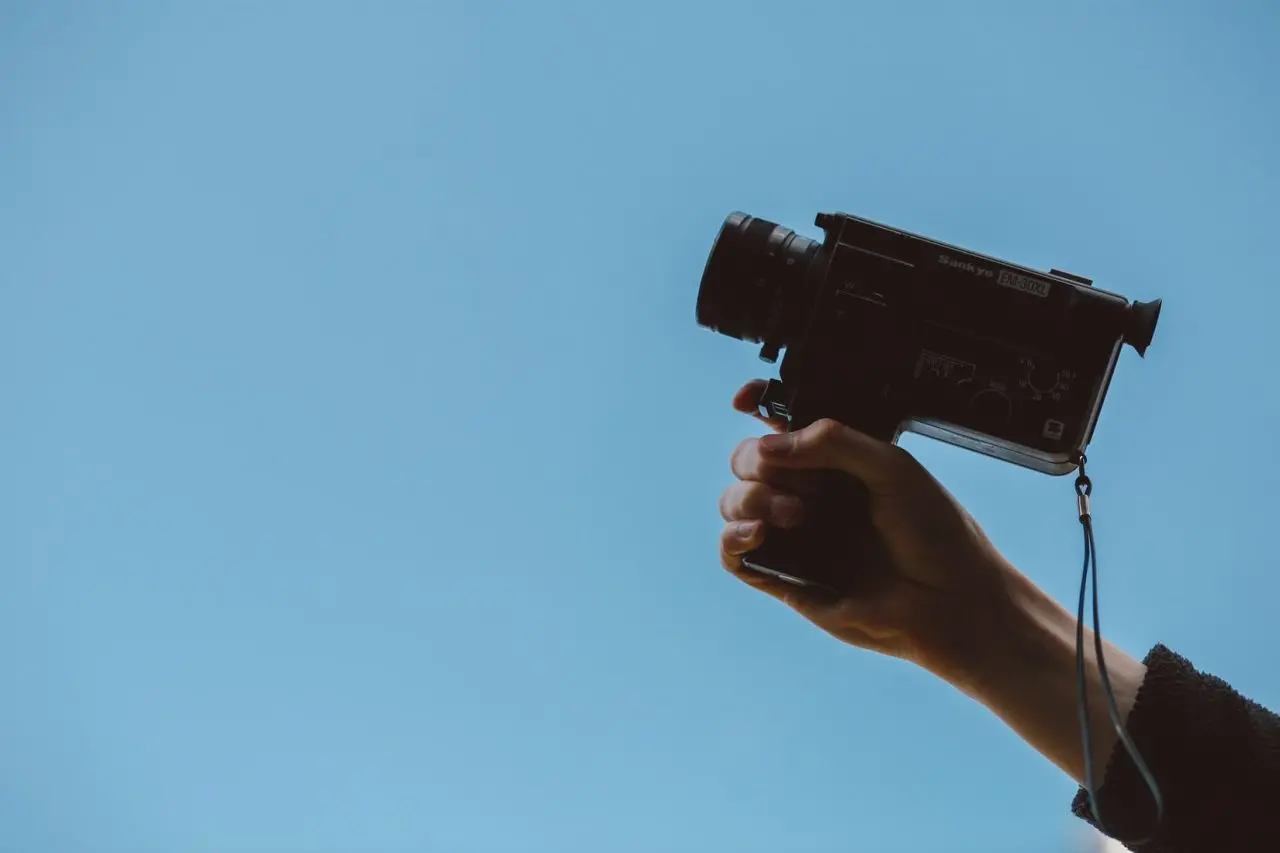9 Filmmaking Tips for Fresher to Become a Pro & Improve Your Skills
To experience the world of video, you may need more than a camera and microphone. Let’s discuss some basic rules on lighting, composition & inspiration, and other filmmaking tips for beginners that help to improve their skills and become professionals.

You needn’t necessarily go to a cinematography institute or take a filmmaking course to learn aspects of a good film shoot & create a video professionally from scratch. You may practice it a lot as an editor, video ads creator, or even actor while working in creative marketing.
You may easily find many short guidelines online that teach you how to make explainer videos. On the other hand, thousands of successful video bloggers have no special education. Simply, they use filmmaking tips that enable them to dwell on their talents.
Nevertheless, to begin with, it’s essential to define what video making is and how to optimize the process so that to save time & effort in the end.
What is Filmmaking?
Filmmaking or shooting nowadays is the process of creating (obtaining) an image content, the process of creating a cinematic image for film or any digital media.
There is a theory of four screens, according to which we now consume content using
- Cinema screen,
- TV,
- Computers,
- Mobile gadgets.
Each media has its own specifics. Yet no one knows how many of them are going to emerge in the next 10 years, but whatever platform is used, content is always a king – if there is nothing to show, and then all the media or distribution channels will be useless.
The current trend is that filmmakers are becoming generalists and tend to apply a variety of filmmaking tricks to create & adjust products for different platforms.
9 Filmmaking Tips and Tricks
Each editor who trains their crews to shoot videos often applies filmmaking tips and tricks, which are relatively simple aspects of filming that may dramatically improve video quality. Let’s check them out.
1. Learn to Manage Your Camera
How well you write depends on how familiar you are with your subject. The same’s for video shooting. It has little to do with the technology you use. It’s more about how you manage your camera. You may use either the latest camera or at least an iPhone. But the quality of your video will be instead determined by your visual language skills and your understanding of how different types of frames, edits, and other filming elements help you tell the story.
2. Take a Filmmaking Class or Course
Of course, if you still lack some knowledge or skill, you are welcome to visit some filmmaking classes or take lessons from video connoisseurs. During video marketing products, feel free to use video processing solutions and skilled animated explainer video makers.
Review as many masterpieces as possible before shooting the first videos. Analyze the work of others and learn from their mistakes, if any, or strive for a higher level.
3. Get Creative with Camera Angles
To set a great creative scene, you may play with the camera angles. It’s no big deal if you have already tried it for your phone camera shoot experiments or exercised for your home videos. When you work on your project, it’s even easier to pick an angle because you try a lot while you end with an ideal scene as per the marketing goals required.
4. Mind the Composition
No matter if you’re creative with your approach to the video composition, there are some basic rules that will be especially useful for beginners. Among the most important concepts, there are the use of guidelines, patterns, rule of thirds, and video depth. Go on to check them out if you haven’t yet heard of them.
5. Use Natural Lighting instead of Artificial Lighting
Poor quality lighting may seriously ruin the quality of your video. Only bad sound can be even worse than that. Most videos shot by traditional media journalists with no video journalism qualifications (such as print reporters) turn out to be useless because of the bad lights.
This problem can be solved if you learn to recognize different light sources (soft and hard, natural & artificial) and learn about their various locations. The easiest way to learn is using simple studio lighting that includes a minimum of three lights. You will learn the difference between them and see how natural lights are better. At least you know that you shouldn’t film under the direct sunlight at noon for sure.
1. Look for Inspiration Around Yourself
It will take some knowledge, inspiration & experience from you to turn an idea into a video script. The more of it you have, the easier it will be for you to translate your vision into something tangible, using this knowledge, using all the techniques that you have learned along the way.
The main thing is to fully convey to write everything that appears in your head, looking for inspiration whenever you can. You may just nail up all your equipment, call your friends and drive somewhere with the idea that you come up with a great view on the go.
Draw sketches, diagrams, create lists, do whatever you want, and you need to turn the idea in your head into something working.
2. Share Your Work with People to Get a Feedback
First of all, ask yourself what to shoot your first video for? What’s your top production plan? The most critical step in any filming process is to develop an idea for a future video that will be useful.
No matter what kind of video you shoot, no matter how long it is and how much money you plan to spend on it, share your vision with the crew, with your client or marketing team to validate it. Or make a questionnaire for the future customers to get feedback with valuable remarks.
3. Follow Your Heart
The creative process is impossible without following your imagination. The leap of imagination or a feeling from the bottom of your heart works better than dry research & analysis on the video plot. Mind it while you pre-product your films and shoot any of your materials: marketing, drama, etc.
4. Don’t Give Up
Be ready that at some point it will all go wrong. It is you who is responsible for all actions and events that occur during the filming of the video. Don’t be afraid to err. To err is human. Live & learn to become professional in time.
These nine basic tips may help you improve your video and your viewers will appreciate your skill. By following some of them, you will be able to translate your ideas into videos of any genre.
Remember that it’s not worth giving up if something’s wrong for the first time. It’s quite ok.
Want to Become a Better Filmmaker?
While filming a video may seem easy and much fun, planning is complicated. Some folks may spend their entire lives trying to gain recognition, but they always fail. A crappy script, poor video ideas, crooked editing, no motivation, or low-quality equipment – most likely, you will encounter all the nuances of filmmaking sooner or later. But it’s not about how many times you fail; the main thing is what you get from your failures, what lessons and knowledge you get from your mistakes.
Now you may quickly try yourself in the role of a videographer, armed with a cheap smartphone with a medium camera, but it is better to outline the basic principles of shooting.
To properly conduct any marketing survey, shot incredible videos that make sense, and so much more, you should get armed with at least a minimal amount of knowledge and a lot of persistence. The fresher rules that will help you avoid mistakes that ruin even a well-thought-out video project will be more straightforward.
Do not forget about taking some professional assistance from keen video-makers whenever you need a word of wisdom on any video production. Good luck!


